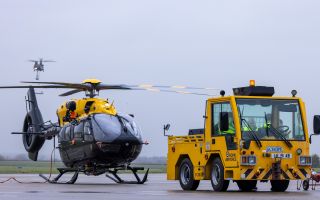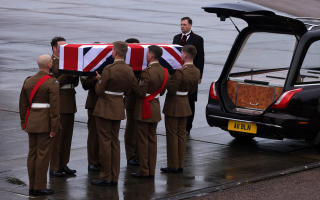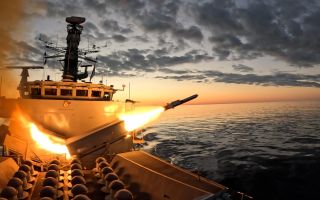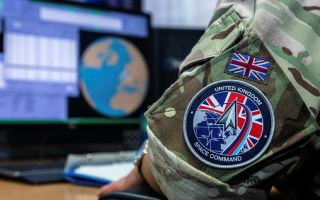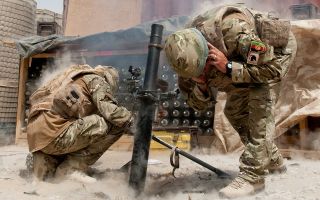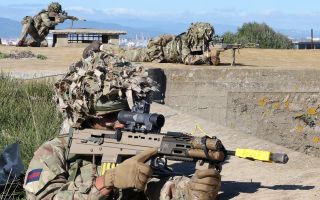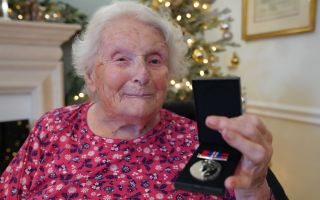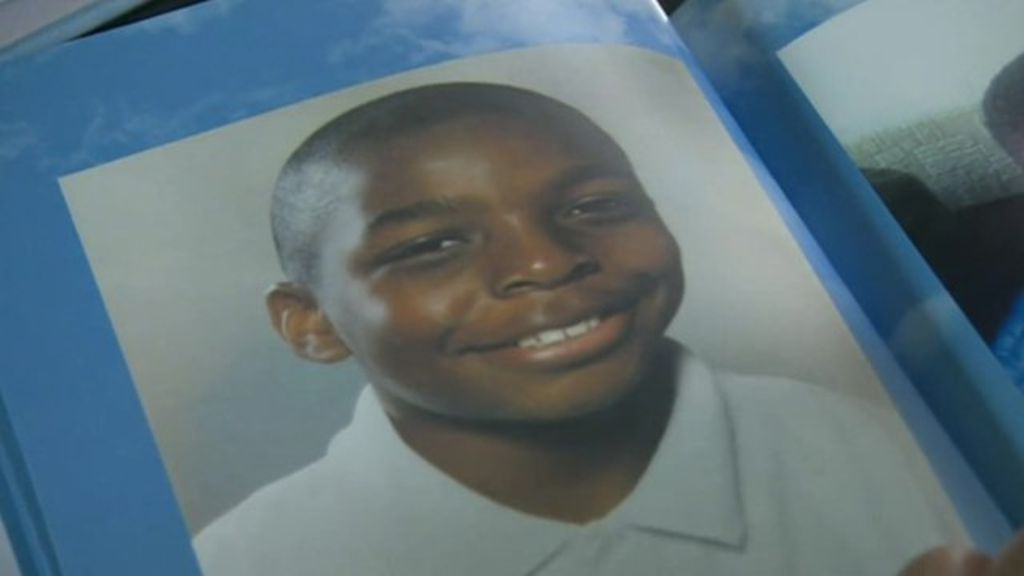
RAF
RAF Cadets Tried To Radio For Help For Dying Teenager Inquest Told

The Squadron Leader who organised a training event for RAF cadets - during which a 14 year old boy died - has told an inquest there was not sufficient supervision of the cadets the night when the teenager became ill.
Christopher White has been giving evidence at the hearing into the death of David Efemena during a night exercise at a defence training estate in Hampshire.
He died after falling seriously ill in his tent.
The inquest has already heard he lay dying for 30 minutes while his peers desperately tried to radio for help.
Another cadet described being awoken around 10 times by "strange, gargling or coughing" noises coming from David, who was also shaking violently.
The witness, who cannot be named because of his age, said he thought David was just snoring and shivering in the cold of their basic bivouac camp.
Unable to rouse him the next morning, senior cadet Craig Barnett set about getting help while another cadet stayed with David.
"I monitored David from 6.15am to 7am," said the 15-year-old, who also cannot be named.
"I could see he was breathing, his chest was rising and falling."
More From Forces TV: Youth Recruitment: UK Criticised For 'Army Of Children'
He told the inquest he was not first aid trained and added: "The only first aid I knew was to put a sleeping bag on him to keep him warm."
Senior cadet Thomas Messer, who was 17 at the time, said he noticed David struggling to carry his pack during an earlier "escape and evasion exercise".
"David wasn't complaining at all during the day," he added. "I could see he was struggling with the weight of his pack but I didn't hear any complaints."
He said it took Mr Barnett, then aged 18, around 10 or 20 minutes to radio adult staff and another five or 10 minutes before the supervisors arrived.
"It took him a little while to get through," he added.
Mr Messer told the inquest he could see David "lying in the foetal position" inside his bivouac.
He said he had first aid training, including on starting a heart and defibrillation, but did not realise David needed medical attention.
"I didn't know anything was wrong so I didn't take any action," he added.
"I instructed Craig to call the staff and that was it."
He said if there had been adult staff on scene they would have gone straight to them for help.
An RAF squadron leader, who signed off on the training exercise, told the inquest he would have expected it to have been cancelled because of lack of supervision.
According to the risk assessment and guidance, there should have been at least one adult per four cadets during the night, but there were nine junior cadets and and only two adults.
The cadets were 1.9km away from the adults who were at a training base camp, the inquest heard.
Squadron Leader Neil Knowles, who authorised the exercise, admitted the activity did not comply with the part of the risk assessment which said a supervisor needed to be contactable from where the cadets were.
He claimed he had not been made aware the numbers had changed between his authorisation and the weekend trip in March last year.
A 999 call was made at 7.12am on Sunday March 23, and when paramedics arrived eight minutes later David was in cardiac arrest and his temperature had dropped to 30.7C, the inquest was told.
The teenager was taken by air ambulance to hospital but was dead when he arrived.
A post-mortem examination revealed David died from a "congenital heart anomaly" after an intense day of physical training, Walthamstow Coroner's Court heard.
David's father, Felix Dibie, said his son was "a fit and active" teenager who never complained of any heart pain.
David joined the air cadets to follow his dream of becoming an aeronautical engineer.
Mr Dibie said: "He was a lovely boy. All around he was a son that you were proud of."
In the months before the trip, David's PE teacher raised concerns about his falling fitness levels and his parents took him to hospital, the inquest was told.
Blood tests revealed he had "sickle cell traits", but a consultant told the family it was not significant and the teenager could carry on with his active lifestyle, which included athletics and regularly playing rugby.
The inquest continues.

